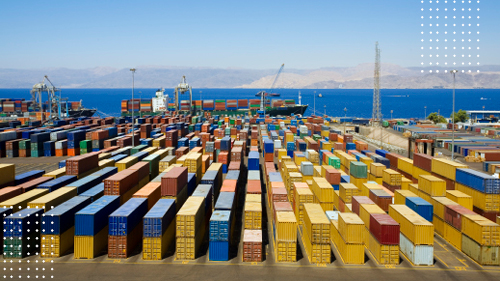Compliance Circular July 2019
07/01/2019

Customs and Border Protection (CBP) recently held their annual Customs Trade Partnership Against Terrorisam (CTPAT) Conference in San Antonio, TX, with an attendance of over 1,500 CTPAT members – from importers and exporters to Canadian and Mexican foreign manufacturers, from highway carriers and sea carriers to brokers and freight forwarders. A sea of people converged upon the seventh largest city in the nation and CBP did not disappoint – providing valuable information regarding the updated Minimum Security Criteria as well as how security in our agriculture is vital to our economy.
CTPAT has been in existence since November 2001. Its origin stemmed from the events of 9/11 and it has grown and developed into one of the largest voluntary programs, combining CBP with private sector businesses who recognize that they have a stake in the cargo security throughout the supply chain.
The Security and Accountability for Every Port Act (SAFE Act) of 2006 created the statutory framework for CTPAT and validated the strict program guidelines used by CBP and the participating trade members. CTPAT has been analyzed and updated since its beginnings 17 years ago, but the major overhaul of the Minimum Security Criteria of 2019 is a result of the collaborative efforts of the private sector and CBP. Topics such as Cyber Security, Vision of Security in the Future and Agricultural Security have been added to the original Security Criteria, making a total of 12 Security Criteria categories that cover Corporate Security, Transportation Security and People/Physical Security.
CTPAT is a valuable program that helps CBP and other government entities battle terrorism, security breaches and cargo disruptions by working with trading partners around the world. CTPAT Partners enjoy a variety of benefits including:
- Reduced number of CBP examinations
- Front of the line inspections
- Shorter wait times at the border
- Access to the FAST lanes at the border
- Partnership with CBP CTPAT officers, who can provide guidance and feedback on security risks within trading partner’s supply chain
- Priority consideration at CBP’s Centers of Excellence and Expertise
- Peace of mind in better identifying personal security vulnerabilities and being able to take corrective action
Becoming a CTPAT Partner is voluntary and has no costs associated with joining the program. The application process is done online and guidance is provided by CTPAT customs officers who will help each business determine eligibility for the program. Once the program is established, CTPAT is renewed on an annual basis and validated on-site every three to four years. More information can be found here.
CTPAT exists and thrives through partnerships with each touch point in a supply chain. The end goal of CTPAT is security – the security of cargo, the security of the various transport modes, but most importantly, the security of people here and abroad.
If you have additional questions, please reach out to [email protected].
Ascent Global Logistics is a proud member of CTPAT Broker and Consolidator sectors and has participated in the program since 2003.